The REMOTE project, funded by the European Union under the Erasmus+ program, involves four higher education institutions and three quality assurance agencies. Its aim is to explore the various facets of remote STEM education, assess its challenges, and uncover opportunities. These are our Project Partners:
The University of Girona (UdG) is a public higher education institution devoted to academic excellence that strives to contribute to the progress of society through the creation, transmission, dissemination and review of knowledge related to sciences, technology, humanities and arts. In order to anticipate the events that will govern the academic future – mainly the endeavour to put people first in an environment defined by new smart machines –, the UdG has decided to focus on the combination of intelligences, including natural intelligence, collective intelligence and artificial intelligence.
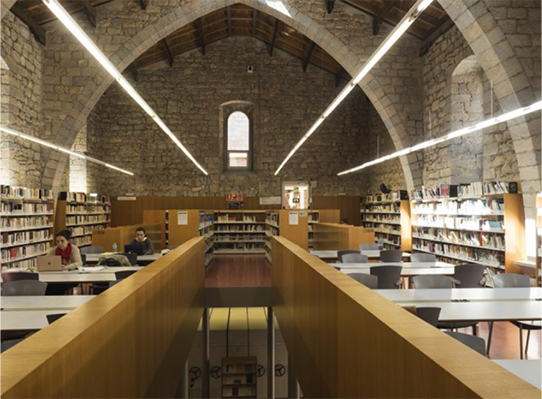
With the synergy or these intelligences, the UdG intends to develop opportunities for its community, for the region it is rooted into and especially for the students who will have to adapt to knowledge and professions that do not yet exist. The UdG has registered over 15.000 students for the study year 2021-22.
Research at the UdG is carried out in over a hundred research groups and 12 research institutes, all structured around 5 main pillars: technology, humanities, health, society and experimental research. Overmore, the UdG currently leads a strategic aggregation that includes 5 associated foundations, 3 participating research institutes, a Science and Technology Park and 8 technology-based ventures. This combination of platforms strengthens the hybrid character of research and fosters the transversal links between different knowledge areas.
The UdG scores high in the rankings at European level and as off late it also holds the HRS4R award. Staff is made up of over 1300 researchers/teachers and over 600 administrative staff members.
During the last 15 years, the UdG has gained ample experience with European projects, as it has participated in many programmes, such as Edulink, Tempus, LLL and H2020. While the research strategy are set out by the Vicerectorate for Research and Technology Transfer, day-to-day management of research activity is ensured by the Research and Technology Transfer Office, a service designed to ensure an optimal development of all R&D&I projects.
Established in 1859, POLITO is the oldest technical University in Italy and one of the most prestigious public institutions in Italy for education and research in engineering, architecture and design. Ranking among the first forty technical universities in the world, it is globally recognized as a high quality centre for education and research.
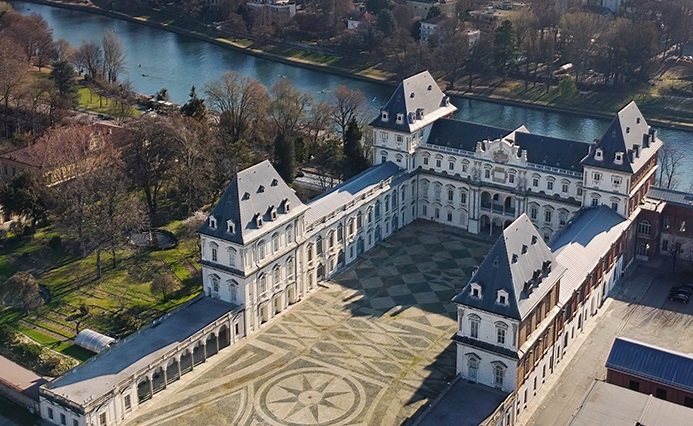
At POLITO around 1.000 Professors and Researchers carry out research and provide education to 37.000 students, of which 5.000 international from more than 120 countries, on a wide catalogue of degree courses including 16 PhD courses and 30 MSc courses, of which 60% in English. Its international education network features 1.000 agreements with EU and non-EU universities and international campuses in China and Uzbekistan. POLITO’s experience in European projects is in research as well as international mobility and cooperation in programmes such as Horizon 2020, FP6-7, Erasmus+, LLP, Erasmus Mundus, TEMPUS, EuropeAid. Throughout the years POLITO has proved to be one of the top Italian universities for volume of international collaborations and quality of the results achieved.
The Department of Management and Production Engineering (DIGEP) is the point of reference in POLITO for the areas of knowledge that study the relationship between systems of production of goods and services and the economic environment in which they operate, thus blending engineering approaches with economics and management. DIGEP promotes, coordinates and manages basic and applied research, training, technology transfer and services to the local community in the areas of systems of production, quality management, product design, management and accounting, industrial plants law and economics.
Founded in 1973, UMinho is nowadays one of the most important and prestigious HEIs in Portugal. It is renowned for the competence and quality of its faculty and for the level of excellence in research as well as the wide range of undergraduate and graduate courses offered and the remarkable degree of interaction with other institutions and the society in general. Located in the north of Portugal, UMinho has a campus in the city of Braga and two other in the city of Guimarães, which cover a student population of around 20000, 40% of which are master or PhD students.
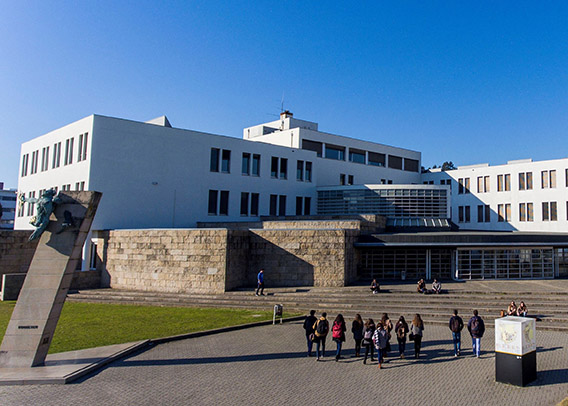
The University has 1200 teaching and research staff and around 800 technical and administrative staff. The University’s organisational structure is flexible and conducive to innovation and interdisciplinary, favouring the exploration of emerging research areas. All 12 Schools/Institutes are quite comprehensive and are a reference for their academic and scientific quality at national and international level. UMinho education and research projects have gained strong international recognition and are supported by a close interaction with many other research centres worldwide. UMinho is a research university, committed to the valorisation of knowledge and also focused on the socio-economic environment, with many successful partnerships. The Shanghai Ranking 2019 ranked UMinho between the 500 best universities worldwide, and Times Higher Education, in the University Impact Rankings 2019, considered UMinho as the best Portuguese university and the 83th across the world for its social and economic impact, based on the United Nations’ Sustainable Development Goals. UMINHO offers 57 1st cycle and integrated Master’s degrees, almost 100 Master courses and over 60 PhD programmes (several international programs involving prestigious institutions such as MIT and CMU, USA). Internationalisation is an institutional priority and UMinho has a long and soundly-based experience in coordinating and participating in several EU programmes.
UMinho will be participating in this project through its School of Engineering (EEUM), which focus its activities on the traditional areas of Engineering, as well as on emerging areas with a strong research component, and more specifically through its ALGORITMI Center, a research unit of the EEUM, that develops R&D activity in Information and Communications Technology and Electronics (ICT&E). The team belongs to the Research Group in Industrial Engineering Management, and will count with the support of the Internationalisation Office of the School of Engineering, which has expertise in European projects, especially within the Erasmus+ KA2 Actions, and namely in regards to Project Management, Quality Assurance and Dissemination and Exploitation. UMinho will also be involved at the rectorate level with the participation of the Pro-Rector for Student Affairs and Pedagogical Innovation.
The Universitat Internacional de Catalunya (UIC Barcelona) founded in 1997, is a private foundation and has its own legal status. As a non-profit institution, our university aims to provide a service to society by undertaking teaching and research activities aimed at professional capacitation and the scientific, cultural and human education of students, as well as undertaking activities to promote culture.
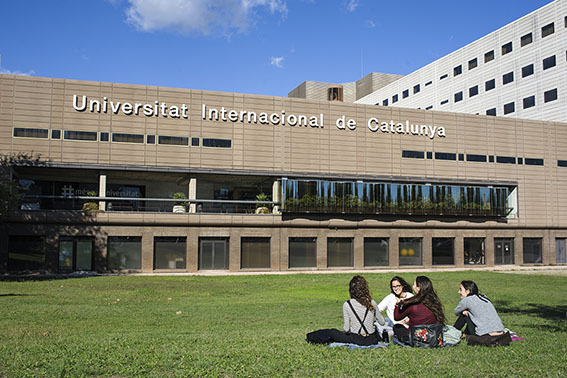
Today, the university encompasses eight faculties in addition to the Doctorate School. The academic programs offered by UIC Barcelona includes 15 Bachelor´s Degrees and a wide range of official and professional masters and postgraduate courses. In all of them, UIC Barcelona offers a highly personalized education with a strong vocational element. The international character of the university is a basic feature and a necessary one for students. In this respect, 25% of our students are from overseas. UIC Barcelona offers a variety of international exchange programmes for scholars and staff. UIC Barcelona has two campuses. The Barcelona Campus houses the Humanities, Communication Sciences, Law, Economics and Social Sciences Faculties, as well as the School of Architecture. This campus is also home to the Research Institute for Evaluation and Public Policies, the Institute for Advanced Family Studies, the Institute for Multilingualism and the Doctorate School. The Sant Cugat Campus is home to the Faculty of Medicine and Health Sciences, the Faculty of Dentistry and the Faculty of Education. Situated inside the grounds of the Hospital General de Catalunya. Practical experience, particularly on this campus, forms the basis of successful learning. This campus is also home to the University Institute for Patient Care and the Bioengineering Institute of Technology.
In October 2016, the Universitat Internacional de Catalunya signed the “European Charter for Researchers” and the “Code of Conduct for the Recruitment of Researchers” with the aim of encouraging and improving the recruitment of researchers and demonstrating its commitment to this European Commission initiative. In May 2018, the Universitat Internacional de Catalunya was recognised by European Commission with the HR Excellence in Research Award. http://www.uic.es/en/research/hrs4r UIC Barcelona implements its research and knowledge transfer plan in order to contribute to the development of science, technology and improved quality of life. The university has 25 recognized research groups in the areas of Arts and Humanities, Social and Legal Sciences, Health Sciences and, Engineering and Architecture. During academic year 2019-2020 UIC Barcelona counted on 93 research projects and 16 business chairs. A total of 332 indexed articles were published.
The Catalan University Quality Assurance Agency, AQU Catalunya, is the main instrument for the promotion and assurance of quality in the Catalan HE system. The purpose of AQU Catalunya is to promote and assure the quality of higher education in line with European and international academic and social quality standards and pursuant to current regulations.
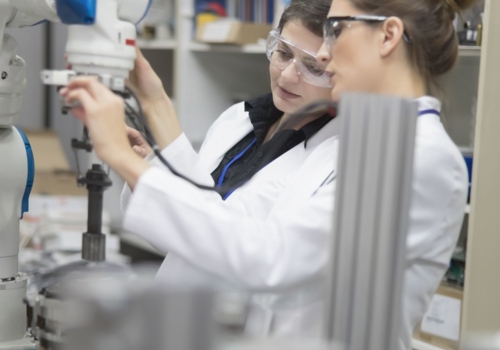
Its aim is also to provide higher education agents with criteria and benchmarks in order to attain the utmost standards of quality in the fulfilment of their duties, taking into consideration society’s interest in benefitting from higher education of excellence.
AQU Catalunya is a public law body bound by the provisions of private law, with its own legal status, full capacity and its own equity to be able to reach its goals, and linked to the corresponding government department with jurisdiction over the universities (Act 15/2015 on the Catalan University Quality Assurance Agency.
Published in the Official Journal of the Government of Catalonia, DOGC, dated 23 July 2015). AQU Catalunya is full member of ENQA, and has been one of the first three agencies to be included in the EQAR. AQU is hosting (2013 to 2020) the INQAAHE Secretariat (International Network for Quality Assurance Agencies in Higher Educations). Also is member of the Spanish Network of Spanish Quality Assurance Agencies (REACU). AQU Catalunya was the first European quality agency to be ISO certified. At present, AQU Catalunya consists of Governing Bodies (President, director and Board of directors), Assessment, Accreditation and Certification Bodies (Institutional and Programme Review Commission and Research Assessment Commission), Advisory Bodies (Vice Rectors Committee; University QA units Committee; Students Advisory Committee; University Councils and the representatives of private universities Committee; Technical Committee Survey) and the staff of AQU (44 members). Since 1997, AQU Catalunya is operating in quality assurance for Higher Education. The experience gained in almost 20 years in the field is significant and recognised nationally and internationally (listed EQAR and full member of ENQA. AQU Catalunya is undertaking cyclical reviews for all university programmes of Catalonia under the scheme of the European Standards and Guidelines (including online programmes). The agency is also very active in international projects and it is responsible for designing and implementing projects for knowledge generation on Higher Education matters.
The Italian National Agency for the Evaluation of Universities and Research Institutes (ANVUR) is an independent public body established in 2011, charged with managing the national quality assurance system of Italian higher education institutions (HEIs) and research bodies. It is responsible for the quality assessment of the activities carried out by Universities, Arts and Music HEIs (AFAM Institutions) and publicly funded Research institutes.

It is also entrusted with steering the Independent Evaluation Units’ activities, and with assessing the effectiveness and efficiency of public funding programmes or incentive programmes for research and innovation activities. ANVUR assessments span the whole range of Universities’ activities (research, teaching, third mission/impact, administration performance) as well as teaching and research activities developed by AFAM Institutions and research bodies. One of the main tasks of ANVUR concerns the accreditation and periodic evaluation of higher education institutions and their study courses (including the accreditation of PhD programmes).
As regards research and third mission/impact, ANVUR evaluates every five years the quality of the outcomes of the research produced in Universities and Research institutes, mainly through peer review, assisted using bibliometric indicators. The results of these activities are used by the Ministry of University and Research (MUR) to allocate public funding among Italian HEIs. ANVUR also contributes to the National Scientific Qualification System (Abilitazione Scientifica Nazionale), by setting minimum standards of research production for candidates and professors willing to be included in the evaluation panels.
Since 2013, ANVUR is also required by law to supervise the functioning of the internal administrative evaluation system of Universities and Research bodies, and to set performance and monitoring standards. The Agency currently has forty-five employees; it is organized in three areas, each headed by an executive, covering a total of ten units run by heads of units. The Director and the seven Academics who are appointed as members of the Governing Board are temporary full-time employees of the Agency. In addition to its permanent staff, the Agency annually recruits approximately two hundred fifty external collaborators.
A3ES – Agência de Avaliação e Acreditação do Ensino Superior (Agency for Assessment and Accreditation of Higher Education) was created by the Portuguese State by Decree-Law no. 369/2007, of 5th November, with the purpose of promoting and ensuring the quality of higher education. The Agency is a private law foundation, established for an indeterminate period of time, with legal status and recognised as being of public utility.

The Agency is independent in its decisions which must consider the guidelines prescribed by the State. The assessment and accreditation regime to be developed by the Agency is defined in Law no. 38/2007, of 16th August. The mission of A3ES is to contribute to improving the quality of Portuguese higher education, through the assessment and accreditation of higher education institutions and their study programmes, and to ensure the integration of Portugal in the European quality assurance system of higher education. The main activities of A3ES in developing its mission are: to define and enforce the quality standards of the HE system; to assess and accredit study programmes and higher education institutions, as well as to audit and certify the internal quality assurance systems of institutions; to promote the public disclosure of the assessment and accreditation results; to promote the internationalization of the Portuguese higher education system. The Agency also performs the following additional activities: to provide the Portuguese State with expertise in matters of higher education quality assurance; to elaborate studies and expert reports on its own initiative or in answer to State demands; to participate in the European Quality Assurance Register – EQAR; to coordinate assessment and accreditation activities in Portugal with international institutions and mechanisms.
The Agency formally assumes its permanent commitment to quality, considering that quality assurance in the performance of its activities is an essential value to ensure the credibility of its actions and the trust of its stakeholders, namely higher education institutions, students, political authorities and society at large. The fundamental elements of A3ES’s quality policy are: a clear definition of its mission and objectives; the strategic planning of its activities, duly expressed in a multiannual strategic plan and the annual activity plans; the compliance of its actions with the European Standards and Guidelines and relevant national legislation; the permanent concern with the transparency of all its activities; the establishment of accountability mechanisms; the adoption of a Code of Ethics for every member of the Agency; the development of a quality culture among its (internal and external) members and collaborators; the establishment of monitoring and continuous improvement mechanisms of its activities; the systematic development of studies and research projects and the systematic critical analysis of themes and mechanisms related to quality assurance; the periodic external evaluation of the Agency, in compliance with European standards; the internationalization policy of A3ES and its integration in ENQA and EQAR. The Agency, as a full ENQA member, is subject to an international evaluation every five years. Two reviews have already been conducted by ENQA, in 2014 and 2019, with positive evaluations in both cases. Link to A3ES’s Quality Policy Statement, Quality Manual and ENQA Coordinated Reviews in 2014 and 2019: https://www.a3es.pt/en/about-a3es/quality-policy.
REMOTE: Assessing and evaluating remote learning practices in STEM
ERASMUS+ Enriching lives, opening minds.
Grant Agreement: 2022-1-ES01-KA220-HED-000085829
